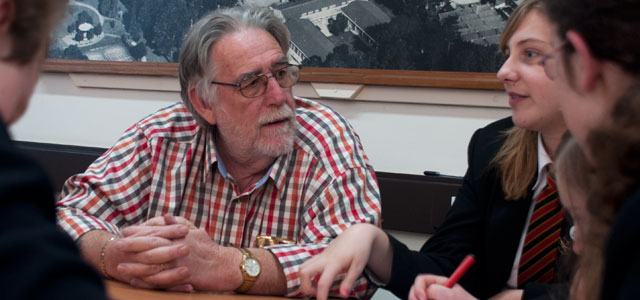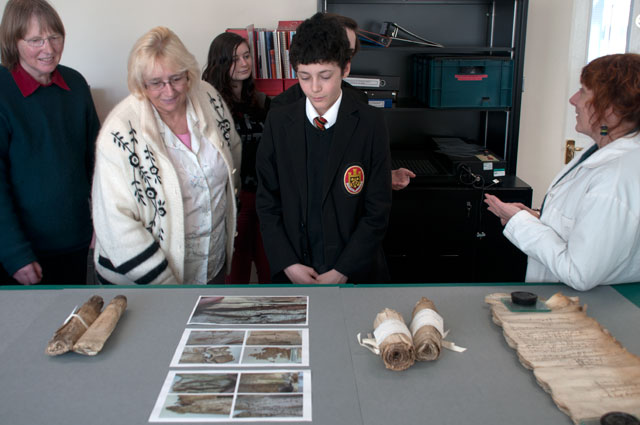
One of the key aims of the Free Time Our Stories, oral history project, is the creation of a new archive. One of the partners behind the project is Dorset History Centre and a session was arranged for volunteers of the project to get together and explore what makes an archive and what can we do to create a useful archive. A key term we all learnt in this session was metadata and how important metadata rates to create a fully functional archive where items can be found.
Due to the numbers involved two sessions were organised, with half the volunteers coming one day and half on the second day. Overall more than 50 volunteers, made up of a mix of old and young people, attended these sessions.
Dr Ennion, Deputy head of Thomas Hardy school, introduced the session by explaining to the young people that this is a ‘real-world’ project. It involves them leaving the school and finding out information that is different to how they are taught at school. Today we will find out about archives and what the Dorset History Centre is all about. Importantly we will leave the sessions by understanding the type of information we can generate that will make what we collect useful for future generations, allowing people to find information that is relevant to them.
Cassandra Johnson, Digital archivist at Dorset History Centre, showed us the practical uses of what is known as metadata, by showing how this type of information is used in Facebook – a product we were all familiar with. Maria Gayton, the Community Engagement officer, then proceeded to play an old oral history tape from their archives. We had to then work out what information we gleaned from this tape, i.e. when was it recorded, where was he talking about; what age he was; when was he talking about happened. From listening to this tape we managed to work out some facts, but if this tape had also captured some additional information, some metadata, it would really help put the information into context.
The groups then started to think through what metadata will be useful to collect as part of this project. Working in small groups with young and old collaborating, they listed the type of information we should collect and record.

We then proceeded to have a tour of the History Centre, seeing what goes on behind the public areas, looking into the archival storage areas.
It was a faciniating experience looking into the past and students seemed to enjoy the time there also.